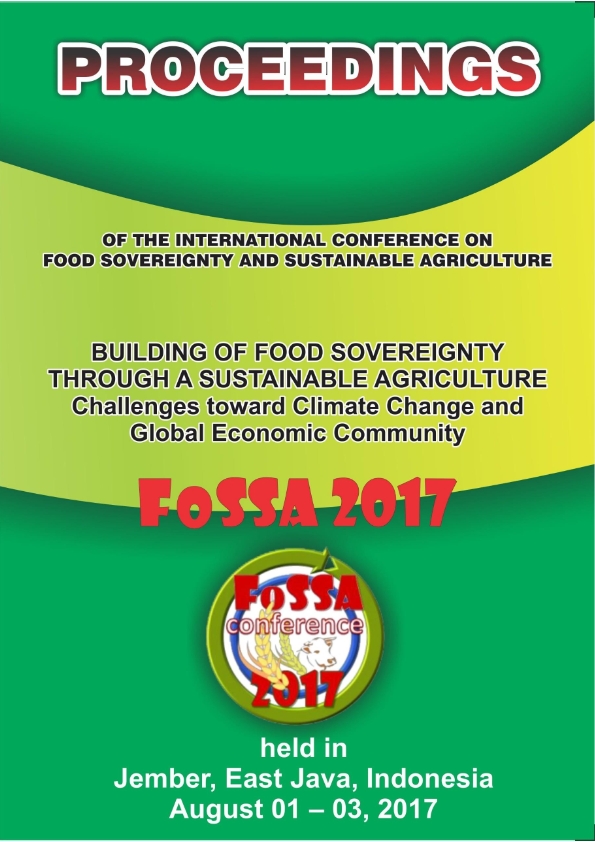SOYBEAN ROOT NODES BEHAVIOR IN VARIOUS TREATMENT OF ENRICHED BIOCHAR WITH NPK
Abstract
Biochar is a highly resistant source of carbon to the decomposition process so it can store
carbon in the long term and improve soil characteristics. However, the macro nutrient
content in biochar is so low that it has not been able to increases soybean plant prduction
especially its dry weight, thus lowering the root nodules. Therefore, biochar needs to be
enriched with nutrients, especially NPK, adjusting the requirement of soybean plants by
comparison (8: 5,1: 4) in biochar. The addition of inappropriate nutrients especially nitrogen
will also affect the development of root nodules. Therefore, this study aims to determine (1)
the effect of enriched biochar on soil properties, (2) the effect of soil properties on soybean
root nodules, (3) the best combination of biochar and NPK in improving the development of
root nodules. This research was conducted using Factorial Randomized Block Complete
Design (RBCD) consisting of two factors with three replications. The first factor (B): Biochar
source, consisting of four levels and then the second factor (D): Enriched Biochar Dose,
consisting of four levels. Based on the correlation result, the root nodules is significantly
influenced by soil pH, total N, N uptake, P uptake, and K uptake in acid soil, while measured
physical and biological characteristic have not significantly influence. Total N and N uptake
have negative correlation so that its enhancement will reduces development of root nodules.
The results show that enriched biochar is not significantly influential in increasing total soil
N, while significantly reduces soil pH. In soybean crops, enriched biochar significantly
influences N, P, and K uptake, vice versa significantly reduces root nodules at doses greater
than 2.5 ton / ha. The best combination was found in 2.5 ton / ha dose of rice straw biochar
and wood biochar for optimize development of root nodules


